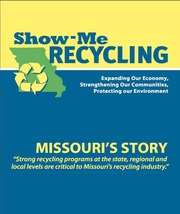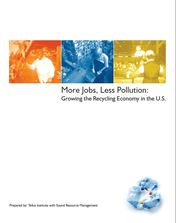Climate Friendly Purchasing Toolkit
The West Coast Climate Forum has created the Climate Friendly Purchasing Toolkit to help governments at all levels reduce the greenhouse gas emissions tied to their purchasing. Purchasing, and its associated supply chain impacts, account for 35-55 percent of public institutions' greenhouse gas emissions. The Climate Friendly Purchasing Toolkit features a trends analysis that identifies the most carbon-intensive product categories -- asphalt, concrete, construction, carpet, information & communication technologies, fuels, food, and professional services -- along with clear guidance and tested strategies for reducing carbon emissions. In May, the West Coast Climate Forum will begin rolling out toolkit modules for each of the product categories.
The West Coast Climate Forum has created the Climate Friendly Purchasing Toolkit to help governments at all levels reduce the greenhouse gas emissions tied to their purchasing. Purchasing, and its associated supply chain impacts, account for 35-55 percent of public institutions' greenhouse gas emissions. The Climate Friendly Purchasing Toolkit features a trends analysis that identifies the most carbon-intensive product categories -- asphalt, concrete, construction, carpet, information & communication technologies, fuels, food, and professional services -- along with clear guidance and tested strategies for reducing carbon emissions. In May, the West Coast Climate Forum will begin rolling out toolkit modules for each of the product categories.
Recycling in a tough economyCommunities across the country are facing challenges to maintain services. Most communities support recycling but when budgets are being chopped, there is sometimes a perception that recycling costs are greater than the benefit. In truth, recycling creates jobs, reduces costs, lowers greenhouse gas emissions and improves community health. Quite a value!
According to the US EPA:
EPA GRANTSEPA Invites Communities to Apply for Smart Growth Assistance
The U.S. Environmental Protection Agency (EPA) is inviting applications from communities interested in exploring barriers to smart growth and testing innovative strategies that can create healthier, more sustainable places to live, work, and play. For more information on the SGIA program and applications, please visit: http://epa.gov/smartgrowth/sgia.htm. For more information on the Partnership for Sustainable Communities, please visit: http://www.sustainablecommunities.gov. |
Missouri Recycling GuideMissouri Recycling Jobs
In 2009, MORA, along with the Solid Waste Management Districts, the Missouri Department of Natural Resources and the US EPA compiled a publication called the Show Me Recycling Report. This report features over 100 success stories that illustrate how recycling is expanding our economy, strengthening our communities and protecting our environment. Click on the illustration to download the 132 page report.
Missouri Market Development Program
The EIERA's Missouri Market Development Program promotes the development of markets for recovered materials and recycled content products by providing financial incentives, technical assistance and information services to businesses, governments and organizations.
Recycling market development helps ensure that collected recyclables are used by companies as raw materials in manufacturing new consumer products. Recycling supports Missouri's sustainable economy while conserving resources and reducing reliance on Missouri’s landfills. |
More Jobs. Less Pollution: Growing the Recycling Economy in the U.S.
An excellent study on growing a green economy through recycling was published in 2011 from the Tellus Institute and widely disseminated through government agencies, environmental organizations, unions and workforce development groups. The study provides strong evidence that achieving a 75% diversion rate for municipal solid waste (MSW) and construction and demolition debris (C&D) by 2030 will result in:
• 2.3 million recycling jobs • Reduction of almost 515 million metric tons of greenhouse gases - equivalent to shutting down about 72 coal power plants or taking 50 million cars off the road. • Significant reductions in air emissions that impact human health and ecosystems. • Immeasurable benefits of reducing the use of non-renewable resources and conserving energy throughout the materials economy. Click on the image to download the free report. |

